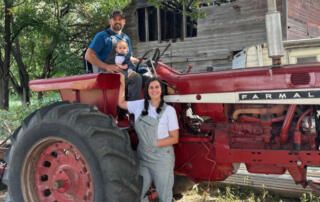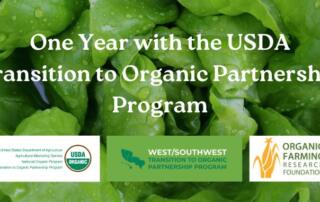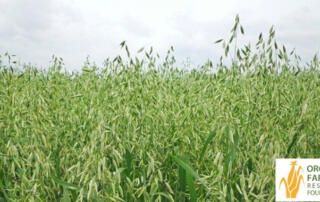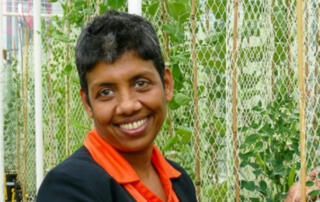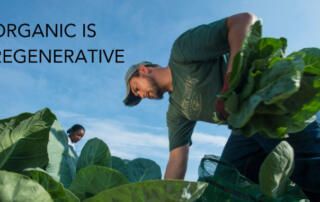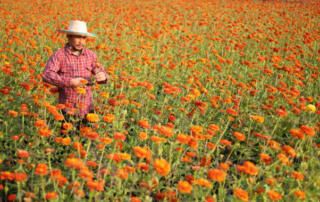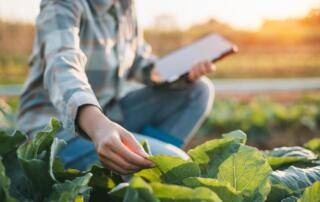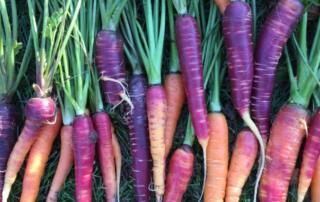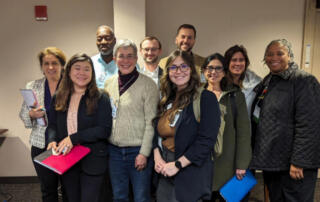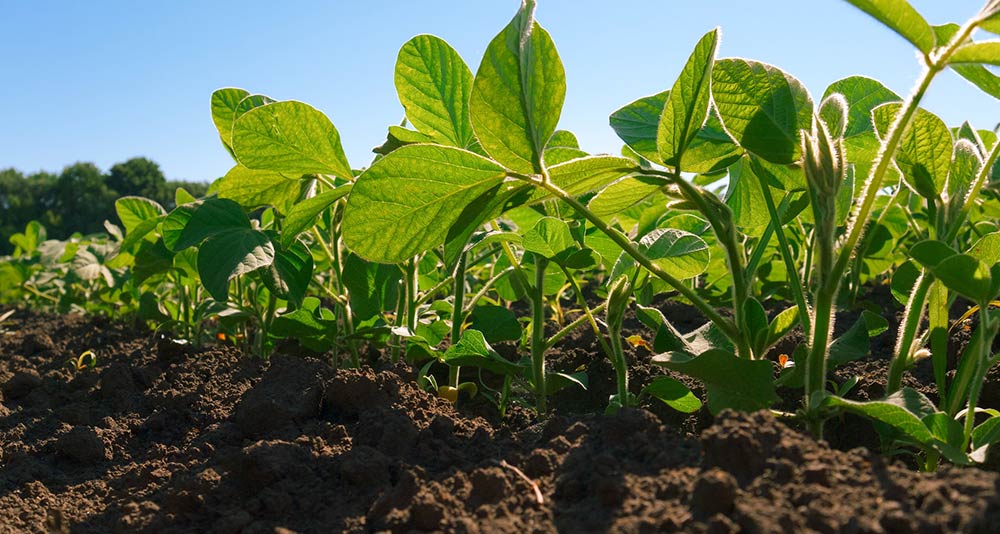Latest OFRF News
Farmer Led Trials Program Spotlight: Colby Farms
Tim and Becky Colby own Colby Farms, a 14 acre farm in Papillion, Nebraska, where they produce vegetables, fruits and some livestock products for their community. They are participating in OFRF's Farmer Led Trials (FLT) Program to research the best cover crop options for reducing soil compaction on their farm.
Growing Together, one year with the USDA Transition to Organic Partnership Program
This month Gordon’s Policy Corner reflects on a year of achievements with the USDA Transition to Organic Partnership Program in the West/Southwest region (TOPP-W/SW, including toolkits for accessing farmer support funding, and other resources to empower farmers transitioning to organic practices.
Beyond Buzzwords: Organic is Regenerative
The term ‘regenerative’ has gained widespread traction, but definitions vary widely. It has caught the attention of consumers interested in the impact of their food choices, and farmers and policymakers looking for ways to adapt to or mitigate climate change. But organic is already regenerative.
Organic Researcher Spotlight: Dr. Dil Thavarajah
New cultivars of pulse crops (lentils, chickpeas, and field peas) may soon be available to organic farmers! These improved varieties are under development through a project led by Dr Dil Thavarajah at Clemson State University (CSU).
New Toolkit Highlights How Organic Practices Lead the Way in Regenerative Agriculture
The Organic Farming Research Foundation (OFRF) is proud to announce the launch of an innovative messaging toolkit, “Organic is Regenerative,” designed to address the growing interest in sustainable food choices and climate-friendly agriculture.
Shaping Agriculture Policy for a Sustainable Future
In this month's Policy Corner, we share all of the work we’ve been up to this year and what we’re looking forward to in the continued process of advocating for organic agriculture.
OFRF Releases New Soil Health Course in Spanish
As part of a commitment to a more inclusive agricultural community OFRF expands access to Spanish-language resources for sustainable farming with a soil health course in Spanish and a new Spanish Resources page.
Farmers Announced for OFRF’s new Farmer-Led Trials Program
OFRF is proud to announce the launch of our innovative Farmer Led Trials (FLT) Program with the selection of our first ten farmers. The FLT Program will support farmers and ranchers in conducting practical, on-farm research that address farming challenges and increase farmer-led innovations in organic farming.
Carrots, Tomatoes, and Field Days
Bringing farmers & researchers together is one of OFRF's greatest joys. In this post we share a recap of a recent carrot tasting field day and links to new research summaries on carrot and tomato breeding projects.
Organic Advocacy in Action: Reflections on NSAC Lobby Day
Gordon's Policy Corner has a guest author this month - Annika LaFave, OFRF Policy and Communications Intern OFRF Policy & Communications Intern, Annika LaFave in front of the capitol after 8 official meetings during NSAC's annual lobby day, and a "meet and greet" coffee chat. Earlier this month, I had the exciting opportunity to participate in the National Sustainable Agriculture Coalition (NSAC) Lobby Day with Gordon (OFRF's Policy & Programs Manager). As the Policy and Communications intern for the Organic Farming Research Foundation and a recent newcomer [...]



